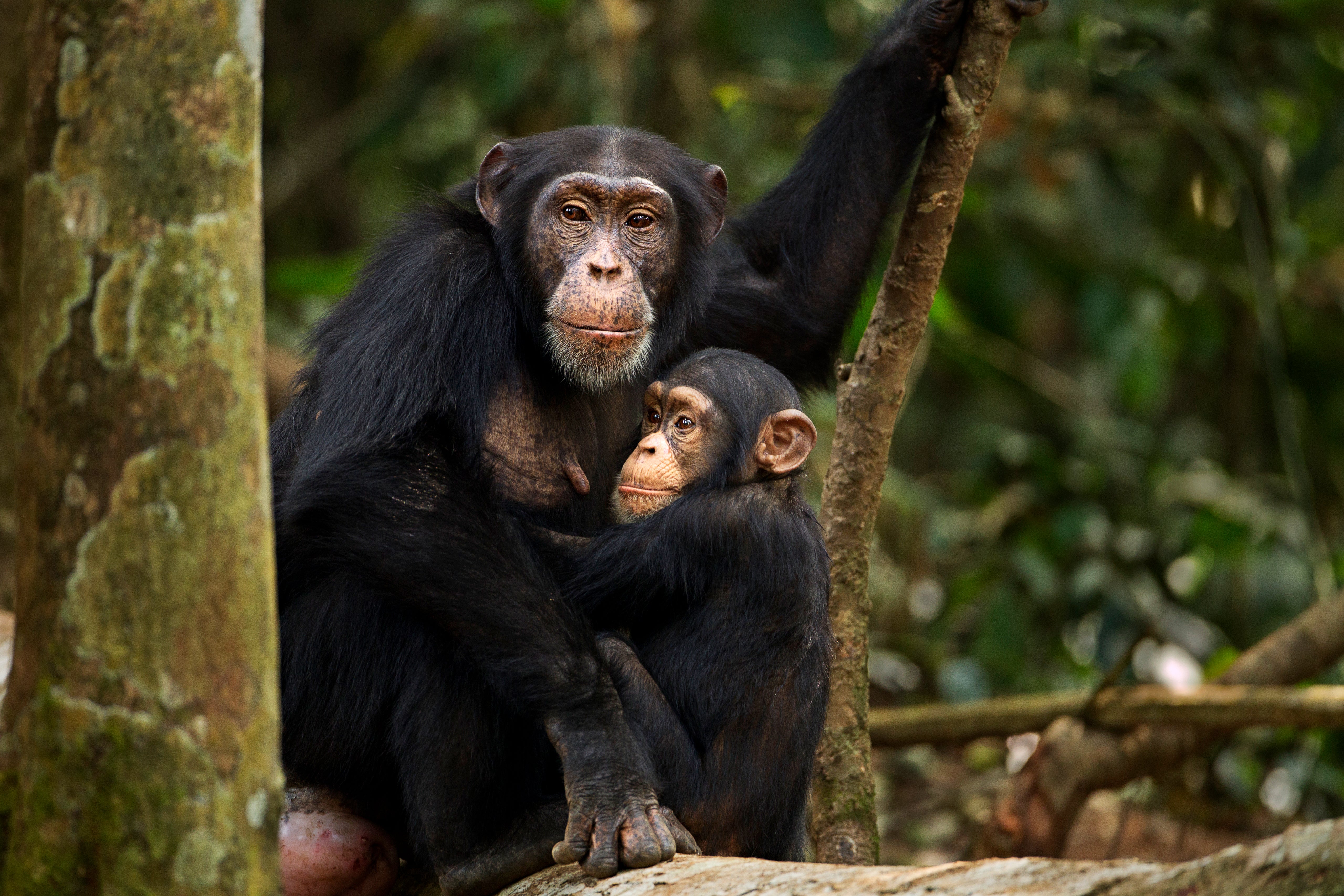
Rubin, a baby bonobo, was foraging near his mother Rose in the Congo rain forest when an adult bonobo named Olive snatched some food from Rubin’s tiny hands. Then Olive smacked the baby, hard, in the face and neck—right in front of his mother.
Primatologist Rachna Reddy of the University of Utah, who was observing the group from about 30 feet away, expected Mom to lay down the law. “I was just like, ‘Gasp! Somebody’s about to get beaten up,’” she says. But to Reddy’s shock, Rose didn’t lift a finger, even as baby Rubin wailed.
In a recent study, Reddy and her colleagues documented some surprising differences in the parenting philosophies of humanity’s two closest cousins: bonobos and chimpanzees. While bonobo mothers very rarely stepped in when someone was “mean” to their children, chimpanzees behaved more like “helicopter moms,” intervening nearly half the time. This ran counter to primatologists’ expectations of these two species and shows that “what it means to be a supportive parent varies across the animal kingdom,” Reddy says. The study was published in February in Animal Behaviour.
On supporting science journalism
If you’re enjoying this article, consider supporting our award-winning journalism by subscribing. By purchasing a subscription you are helping to ensure the future of impactful stories about the discoveries and ideas shaping our world today.
Bonobos and chimpanzees have vastly different reputations. Bonobos are often seen “as being the nicer of our cousins,” while chimps get a bad rap, explains Elizabeth Lonsdorf, a primatologist at Emory University, who wasn’t involved in the new paper. In chimpanzee society, dominant males use lethal force to defend their turf, and infanticide and sexual coercion against females are common. Bonobo society is matriarchal, and females have a lasting impact on their offspring. This is especially the case for sons, who inherit their rank from their mother and may need her help as…
Read the full article here






